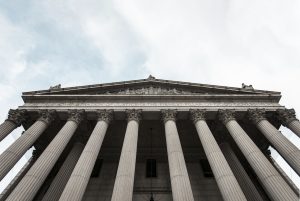 On December 26, 2019, the New York State Supreme Court Appellate Division issued a strong rebuke to retroactivity by holding that a law with a 97-day retroactivity period violated the taxpayer’s Due Process rights. Matter of Mackenzie Hughes LLP et al. v. New York State Tax Appeals Trib. The Supreme Court Appellate Division, Third Department—New York’s intermediate appellate court—held the taxpayer’s Due Process rights were violated because: 1) the retroactive application of the law did not serve a public purpose; 2) the taxpayer did not have adequate forewarning of the law change; and 3) the application of the law represented a 97-day retroactivity period.
On December 26, 2019, the New York State Supreme Court Appellate Division issued a strong rebuke to retroactivity by holding that a law with a 97-day retroactivity period violated the taxpayer’s Due Process rights. Matter of Mackenzie Hughes LLP et al. v. New York State Tax Appeals Trib. The Supreme Court Appellate Division, Third Department—New York’s intermediate appellate court—held the taxpayer’s Due Process rights were violated because: 1) the retroactive application of the law did not serve a public purpose; 2) the taxpayer did not have adequate forewarning of the law change; and 3) the application of the law represented a 97-day retroactivity period.
The Appellate Division reversed the New York State Tax Appeals Tribunal decision, which found that the retroactive application was not significant enough to violate the Due Process Clause. While it recognized that the retroactivity period was relatively brief, the Appellate Division held that no public purpose was served by the retroactive application of the law (citing James Sq. Assoc. LP v. Mullen (21 NY3d 233, 249-250 [N.Y. 2013]). Further, the Appellate Division held that the taxpayer reasonably relied on the old law and did not have adequate warning of the law change. The Appellate Division made clear that the requirement for “adequate warning” was not eliminated because the taxpayer could not have taken action to avoid the law. The Appellate Division pointed out that with adequate warning the Petitioner could have changed its behavior in conducting its business (i.e., investment in business versus retain cash assets).
The Due Process constraints on retroactive application of tax laws is critically important in light of recent developments following the U.S. Supreme Court Decision in South Dakota v. Wayfair (radically expanding state taxing jurisdiction) and state tax conformity to the federal Tax Cuts and Jobs Act.
 SeeSALT Blog
SeeSALT Blog

